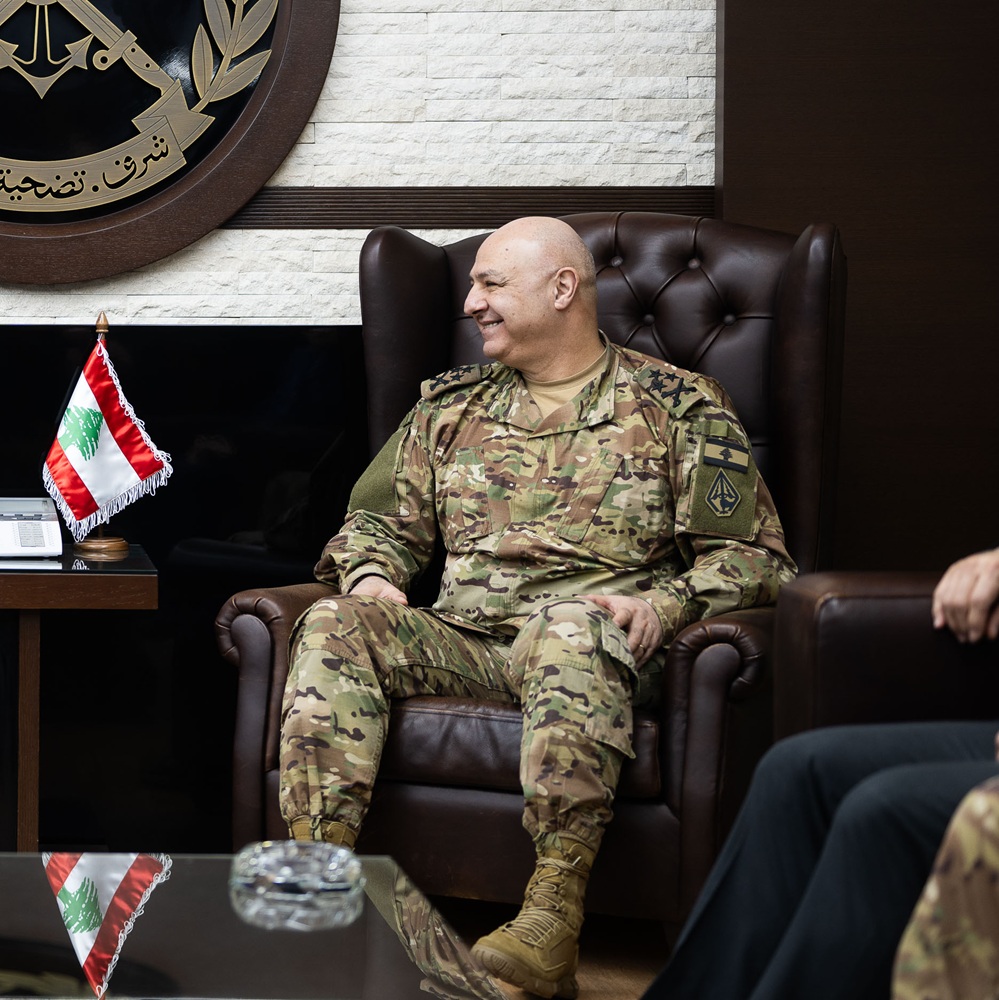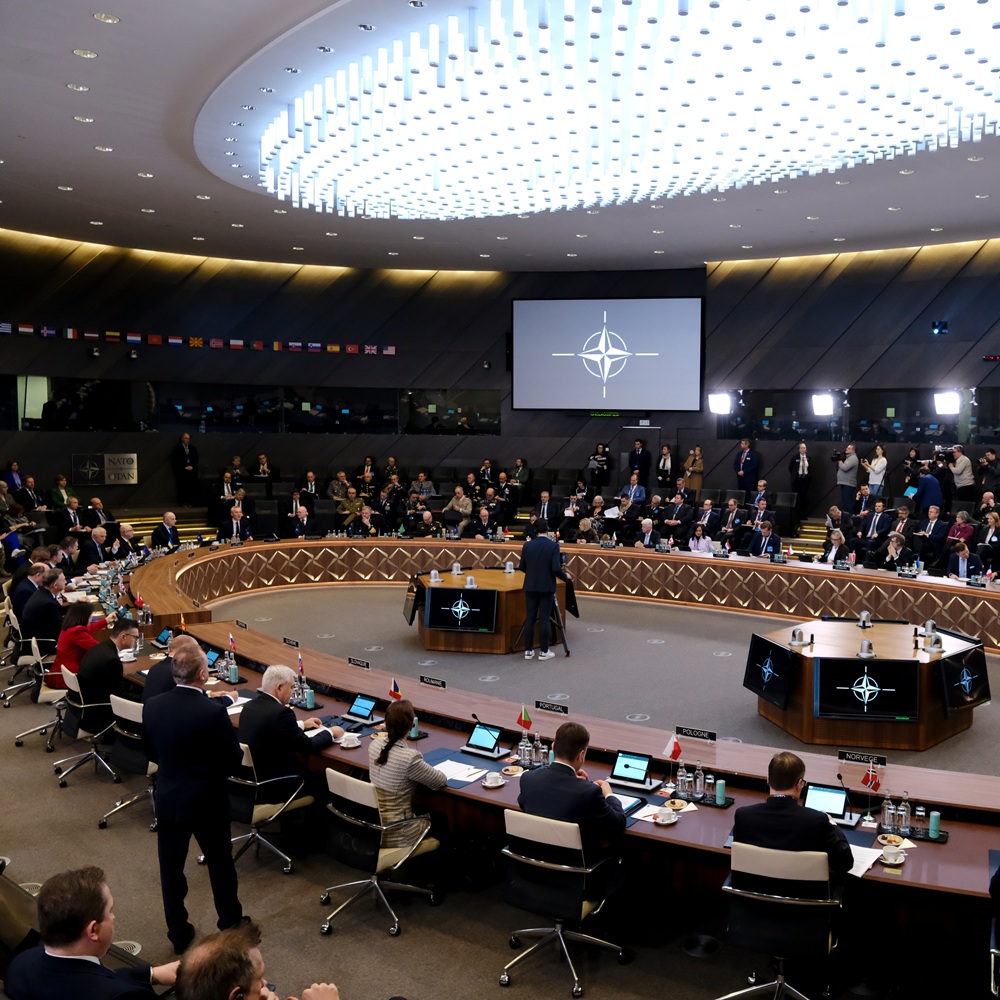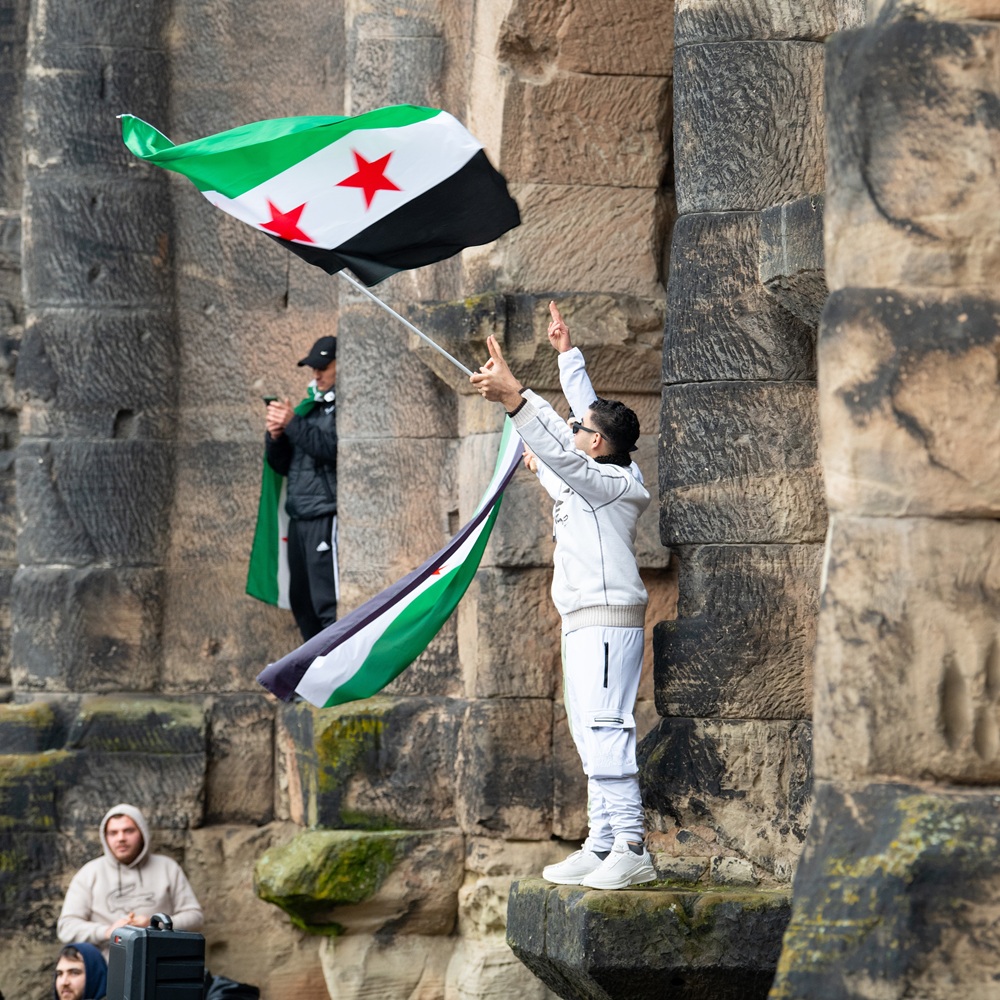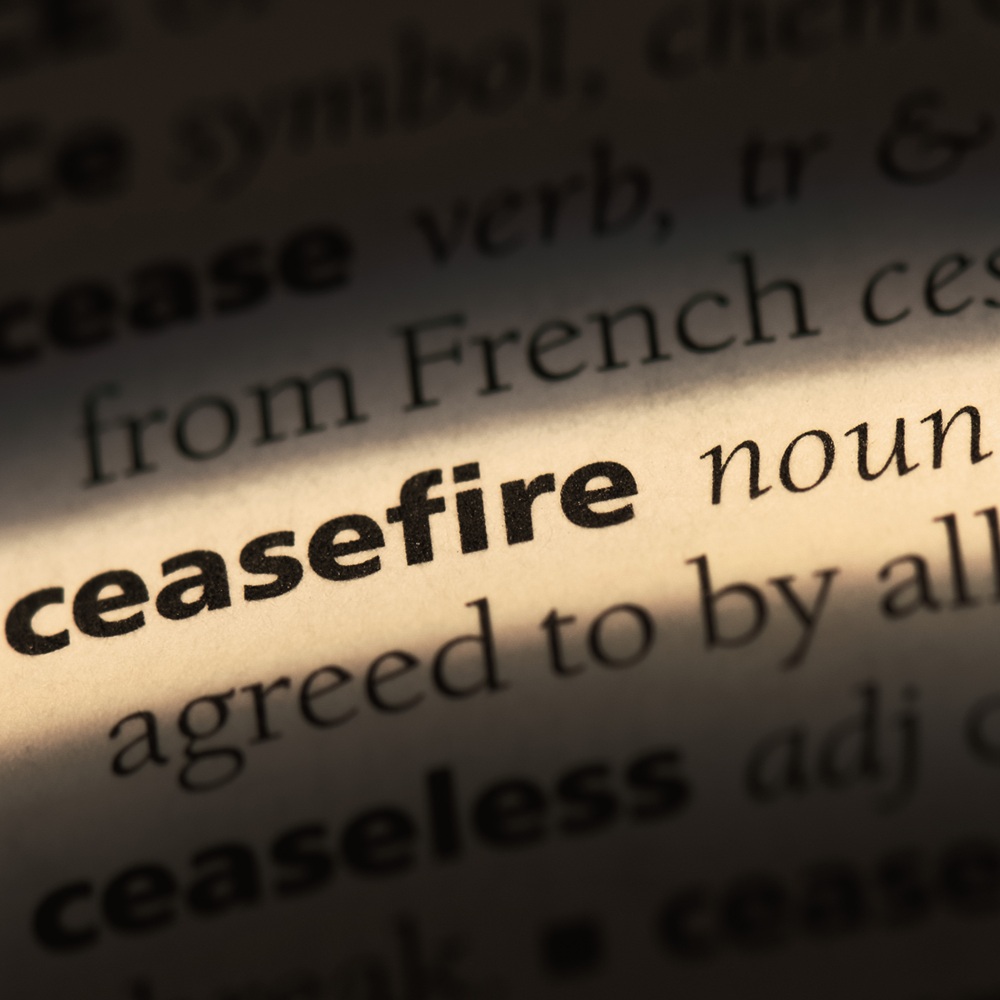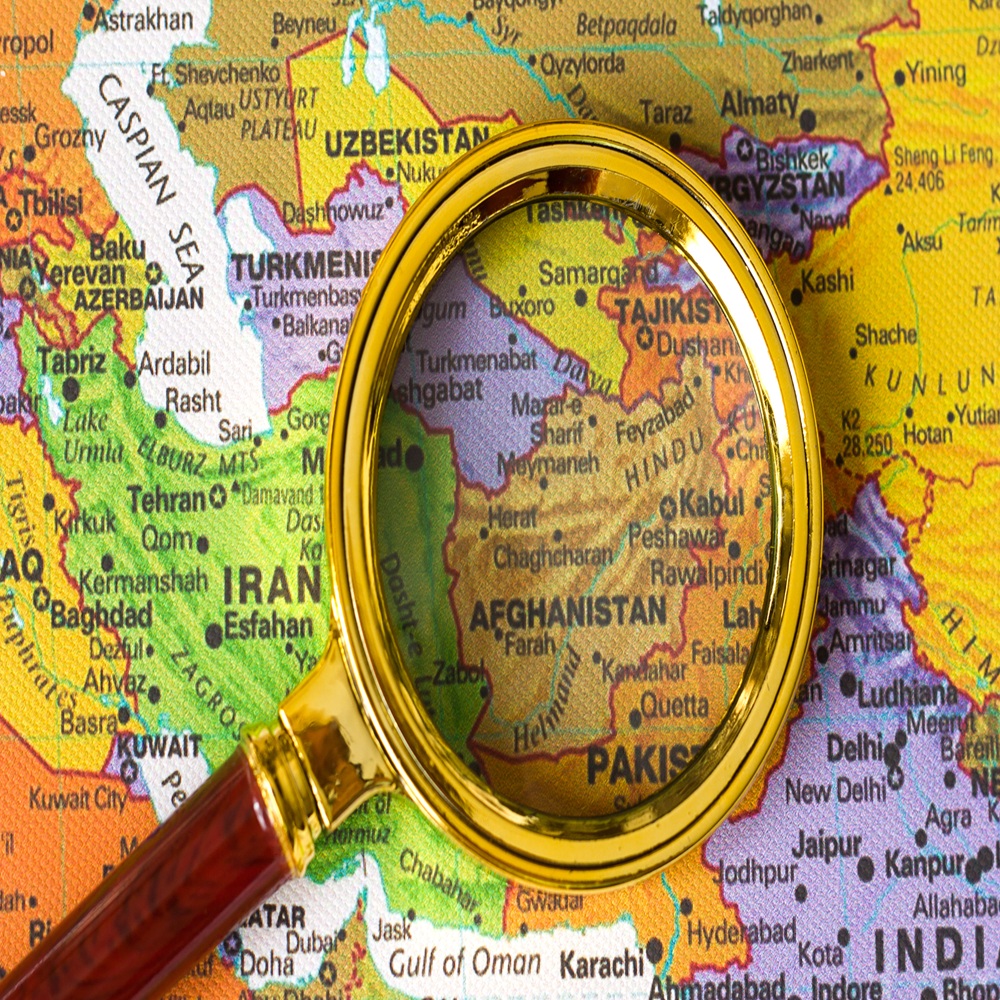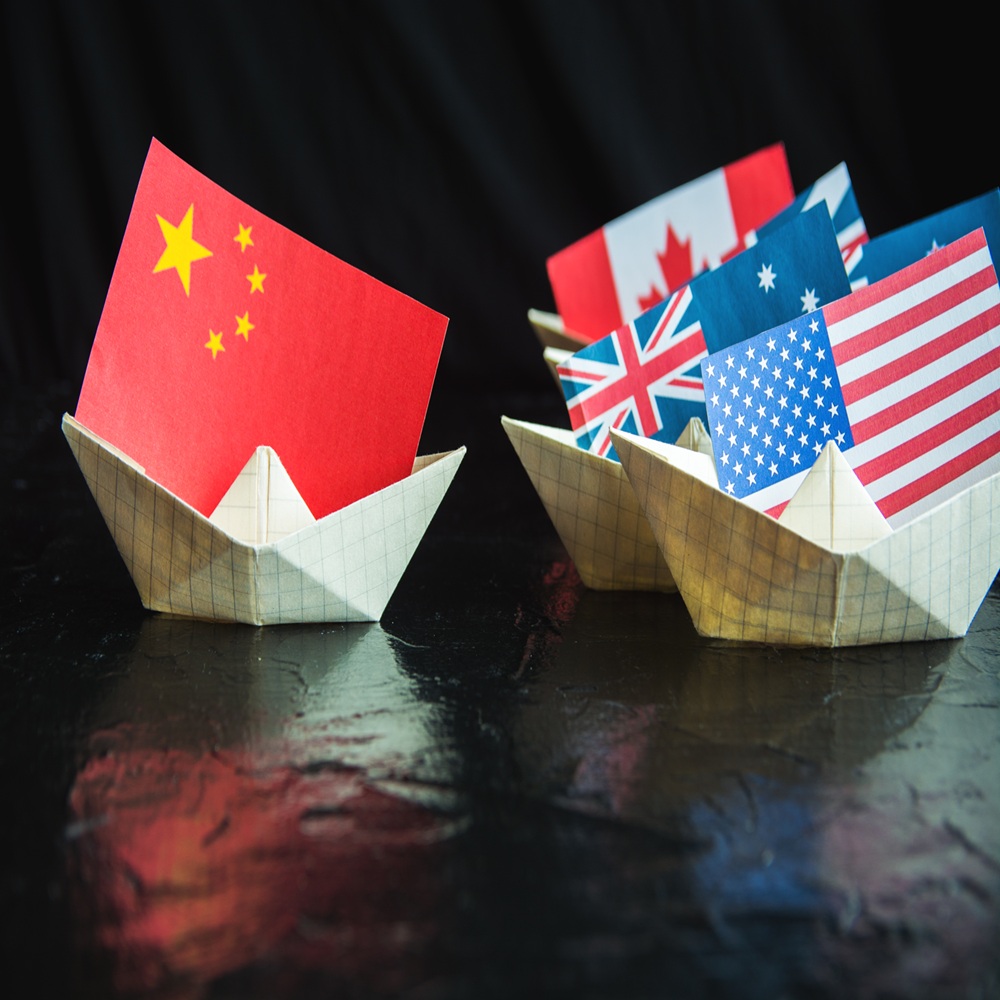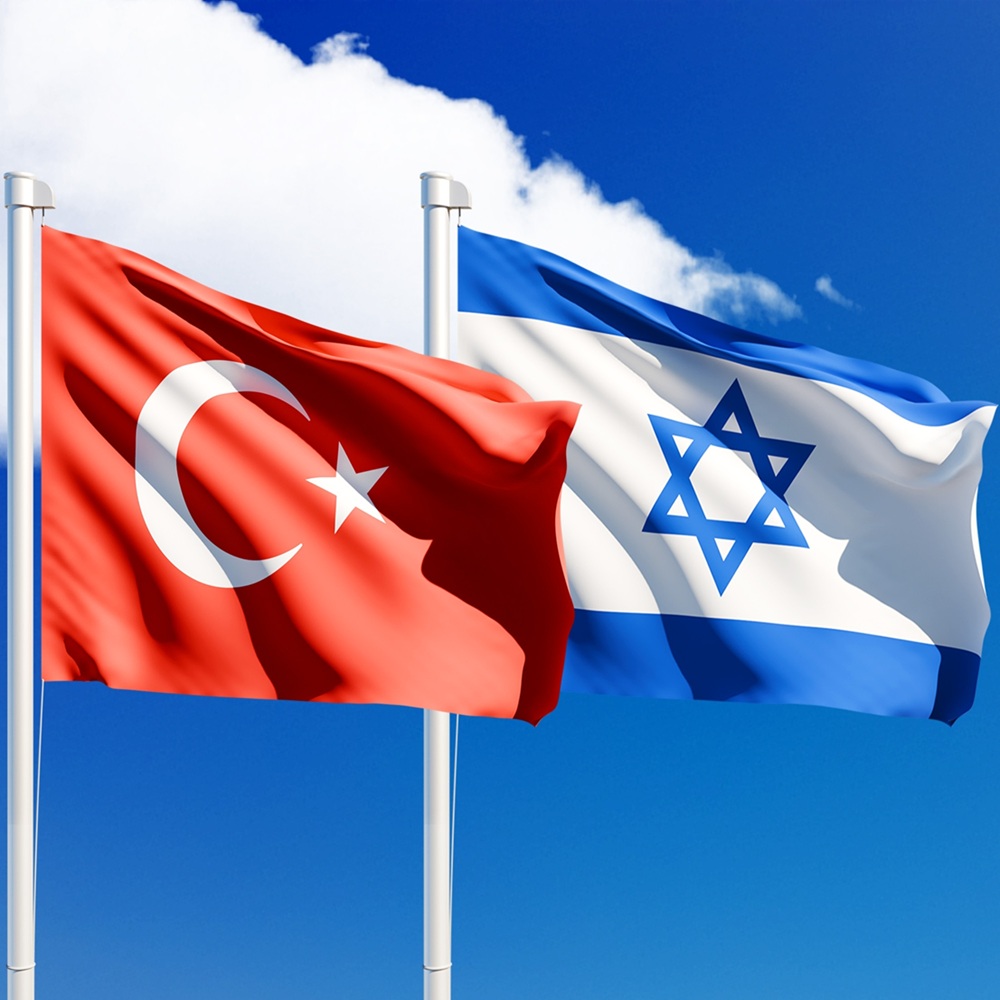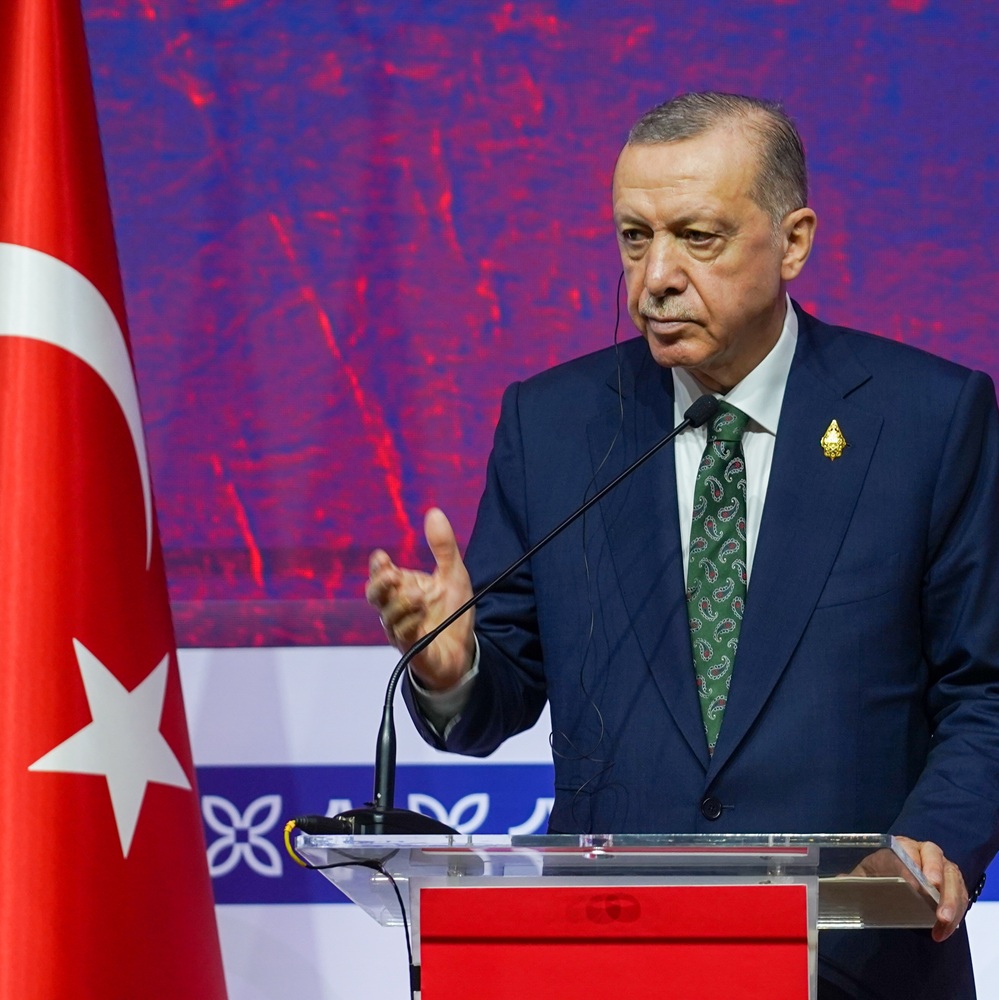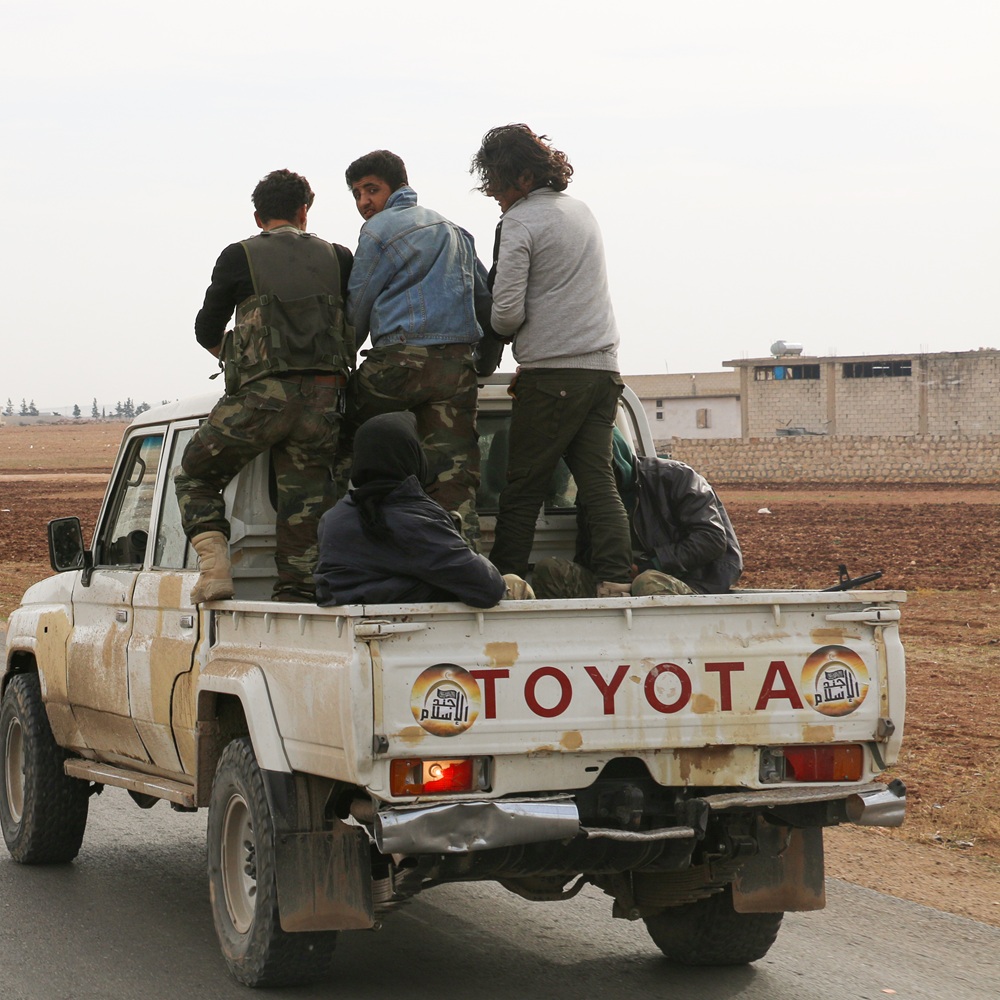
China targeted by the Turkestan Islamic Party
by Johann C. Fuhrmann
한국어로 읽기 Leer en español In Deutsch lesen Gap اقرأ بالعربية Lire en français Читать на русском What is behind the threats of Uyghur Islamists from Damascus? It has long been known that the foreign militant Islamists fighting in Syria include Uyghurs from northwest China. After the fall of the Assad regime, the Turkestan Islamic Party (TIP) issued a clear threat to China in December 2024. In a propaganda video, a masked spokesperson for the group declared: "Here in Syria, we are fighting for Allah in all cities, and we will do the same in Urumqi, Aqsu and Kashi." These cities are located in the Chinese region of Xinjiang, which the Islamist fighters refer to as "East Turkestan". This message marks an escalation in the propaganda of the TIP, which has been active in Syria for over a decade. It not only highlights its involvement in the fighting in the Syrian civil war but also emphasizes its goal of taking the conflict to China. But how serious is this threat really, and what challenges does it pose for Beijing? The controversial role of the TIP China observer Wolfgang Hirn is one of the few German-language authors to have dealt intensively with the latest developments in the Turkistan Islamic Party (TIP). "The party was founded in the 1990s. Its aim was to establish an Islamic state in Xinjiang and Central Asia. It had its bases in Afghanistan and Pakistan and was mainly recruited from Uyghurs who wanted to leave Xinjiang or had to leave due to Chinese persecution," explains Hirn.1 The Uyghur jihadists of the TIP pursue the goal of forcibly achieving the secession of the Uyghur Autonomous Region of Xinjiang from the People's Republic of China and establishing an Islamic Republic of East Turkestan. While the TIP was primarily active in Afghanistan and Pakistan in the early years, it later increasingly expanded its activities to Syria. There it allied itself with other Islamist alliances of various militias, such as Hayat Tahrir al-Sham (HTS). Many of the Uyghur fighters and their families sought refuge in the Syrian rebel stronghold of Idlib. "The Chinese government does not use the name TIP, but ETIM (East Turkestan Islamic Movement). It serves as a kind of collective term for all militant Uyghurs. The reason for this is probably that ETIM was listed as a terrorist organization by the USA between 2002 and 2020, which lent legitimacy to the official Chinese interpretation. The United Nations also has ETIM on a corresponding list," reports Björn Alpermann from the University of Würzburg on the LinkedIn platform.2 Background: ETIM was added to the US terror list as part of then US President George W. Bush's efforts to gain China as an ally in the US-led "War on Terror". Designated as a "terrorist organization" on this exclusion list, ETIM members and supporters were banned from entering the US.3 However, ETIM was removed from the US terror list again "because there has been no credible evidence for more than a decade that ETIM continues to exist", the US State Department announced in July 2020.4 Under pressure from the US and China, ETIM was also added to the UN Security Council's sanctions list in 2002, on which it is still listed. "China regularly blames the ETIM, also known as the Turkestan Islamic Party, for attacks and uses the group to justify its crackdown in the predominantly Muslim region of Xinjiang," Deutsche Welle reported in 2020.5 "Human rights groups estimate that hundreds of thousands of Uyghurs, Kazakhs, Hui or members of other minorities in Xinjiang have been sent to re-education camps. China rejects the accusations and speaks of training centers," according to SPIEGEL.6 Beijing claims that the TIP was responsible for terrorist attacks in China between 2008 and 2015, including knife attacks in public places, car bombs and suicide attacks.7 But how strong is the TIP today and what role does it play? "The TIP has always maintained good relations with the HTS and has often acted as a mediator in disputes between the HTS and other rebel groups. It was once described on Syrian television as HTS's favorite ally. The TIP troops took part in many battles alongside the HTS, for example in the liberation of Latakia, Hama and Aleppo. They are considered to be well organized and experienced. The size of the force varies," reports Wolfgang Hirn.8 In 2017, the Syrian ambassador to China at the time, Imad Moustapha, stated that there were up to 5,000 Uyghur fighters in Syria.9 However, experts estimate the number to be lower and assume that there are between 1,500 and 4,500 fighters.10 Media: Irritated reactions from China At the end of last year, the TIP intensified its propaganda activities and published numerous images of its leaders posing with their uniformed troops and showing them fighting in Syria. On December 13, 2024, The Telegraph then published a video on YouTube that deals with the history of the TIP and shows various excerpts from its propaganda videos, accompanied by epochal music. To date, the four-minute video has had more than 2.6 million views.11 The South China Morning Post reacted with unusual irritation to this reporting. In an opinion piece, columnist Alex Lo described The Telegraph's video as a "documentary-like clip" that was "practically an advertisement for the TIP", while repeating all the Western anti-China narratives "as if to justify the group's promised terrorism against Chinese. "12 Thus, "the Western-constructed genocide in Xinjiang (...) also serves as a practical justification for the militant group". The extensive dissemination of the video only led to "the Chinese having to raise the alleged TIP threat at the United Nations. "13 However, this is a grotesque claim: in New York on 17 December 2024, Geng Shuang, China's Deputy Permanent Representative to the United Nations, had only made a rather coarse statement. In New York on December 17, 2024, Geng Shuang, China's Deputy Permanent Representative to the United Nations, merely made a rather sober statement, emphasizing that "Syrian territory must not be used to support terrorism or threaten the security of other countries. "14 The fight against the TIP was repeatedly described by Beijing's Foreign Ministry as "China's core concern in the fight against terrorism".15 Ultimately, Alex Lo's text should probably be understood as an - apparently rather emotional - appeal to "the West" not to portray or regard the TIP fighters as freedom fighters. Outlook: Strategic risks for Beijing "After the victory over Assad in Syria, the question arises as to whether the TIP fighters will remain in the region and organize their fight against China from there," says Wolfgang Hirn.16 So far, however, the TIP, which has been active in Syria for some time, has not been able to organize attacks in China from Syria. In addition to the geographical distance, the strict security precautions in China also play a role, making travel for such fighters very risky. Terrorism experts nevertheless see dangers, particularly from "online activities that lead to radicalization in China but could be organized from Syria. "17 "I sympathize with them, but their fight against China is not ours," Syria's new strongman Ahmed al-Sharaa, leader of the Islamist HTS, recently said about his stance on the TIP.18 Nevertheless, the Uyghur fighters are apparently becoming increasingly powerful within Syria: Meanwhile, recent media reports that members of the TIP have been given high-ranking positions within the Syrian army are causing new concern in China. It is reported that Abdulaziz Dawood Khudaberdi, the commander of the TIP forces in Syria, has been appointed brigadier general.19 Two other Uyghur fighters are said to have been given the rank of colonel. However, a possible return of the TIP to its previous areas of retreat in Afghanistan and Pakistan is also likely to cause headaches for those in power in Beijing, as Afghanistan and Pakistan have become safe havens for terrorist groups such as ISIS-K, Tehrik-i-Taliban Pakistan (TTP) and the Balochistan Liberation Army (BLA) in recent years, writes Yang Xiaotong from the Chinese think tank Grandview Institution in the Asia Times.20 The proximity to China's western borders and the weak control by the Taliban government in Afghanistan and the central government in Pakistan are exacerbating the situation. One thing is clear: China's investment in infrastructure projects and the sending of thousands of workers abroad, particularly to Pakistan, increase the country's vulnerability. In recent years, the number of attacks on Chinese citizens and assets has risen significantly, especially in Pakistan. Beijing suspects that these attacks are organized in collaboration between the TIP and ISIS, al-Qaeda and the BLA in order to undermine Chinese interests and investments.21 "Should battle-hardened TIP militants return to Pakistan and join forces with the TTP, BLA and other groups, it would pose a serious threat to China's strategic interests as its flagship project - the Belt and Road Initiative - runs through the country (...). The likelihood of this scenario has increased exponentially," warns Yang Xiaotong. The TIP is "still officially part of the global al-Qaeda network and, unlike HTS, has never broken away from al-Qaeda," explains terrorism expert Hans-Jakob Schindler from the Counter Extremism Project. "The fact that HTS accepts TIP in its coalition is one of the main arguments that call into question the ideological orientation of HTS. "22 There is no question that the future of TIP is closely linked to Syria's uncertain prospects. Information The text of this work is licensed under the terms of "Creative Commons Attribution-ShareAlike 4.0 International", CC BY-SA 4.0 (available at: https://creativecommons.org/licenses/by-sa/4.0/legalcode.de) References 1 Hirn, Wolfgang 2025: What is the Turkistan Islamic Party and what are its plans?: https://www.chinahirn.de/2025/01/05/politik-i-xinjiang-i-was-ist-die-turkistanislamic-party-und-was-hat-sie-vor/, last access: 12.01.2025. 2 Alpermann, Björn 2025: Post on LinkedIn from 8.01.2025, available at: Link to the post by Björn Aplermann https://www.linkedin.com/posts/bj%C3%B6rn-alpermann-1873b38_turkistan-islamic-party-uses-video-from-syria-activity-7282380785922281472-cNKy/?utm_source=share&utm_medium=member_desktop3 DW 2020: US removes China-condemned group from terror list, available at: https://www.dw.com/en/us-removes-separatist-group-condemned-by-china-fromterror-list/a-55527586, last access: 12.01.2025. 4 Ebd. 5 Ebd.6 SPIEGEL 2021: EU extends sanctions against China, available at: https://www.spiegel.de/ausland/uiguren-eu-verlaengert-sanktionen-gegen-china-umein-jahr-a-e45ffbf6-7727-4052-8512-eb01a958f781, last access: 12.01.2025. 7 Yang Xiaotong 2024: China has cause to be terrified of rebel-run Syria, available at: https://asiatimes.com/2024/12/china-has-cause-to-be-terrified-of-rebel-run-syria/, last access: 12.01.2025. 8 Hirn, Wolfgang 2025. 9 Yang Xiaotong 2024. 10 Hirn, Wolfgang 2025. 11 The Telegraph 2024: Uyghur fighters in Syria vow to come for China next, available at: https://youtu.be/8DRzaZiI8_Q?si=kYaGco2aEk6bw5vx, last access 12.01.2025. 12 Alex Lo 2024: Is Turkestan Islamic Party a foreign proxy force to destabilise Xinjiang?, SCMP, available at: https://www.scmp.com/opinion/article/3291565/turkestanislamic-party-foreign-proxy-force-destabilisexinjiang?module=perpetual_scroll_0&pgtype=article, last access 12.01.2025. 13 Ebd. 14 Zhao Ziwen 2024: Syria-Xinjiang link: China warns leaders in Damascus not to threaten security elsewhere, available at: https://www.scmp.com/news/china/diplomacy/article/3291393/syria-xinjiang-link-chinawarns-leaders-damascus-not-threaten-securityelsewhere?module=inline&pgtype=article, last access: 12.01.2025. 15 Global Times 2024: Combating ETIM is China's core concern in counter-terrorism and shared responsibility of intl community, available at: https://www.globaltimes.cn/page/202402/1306930.shtml, last access: 12.01.2025. Combating ETIM is China's core concern in counter-terrorism and shared responsibility of intl community: FM, available at: https://www.globaltimes.cn/page/202402/1306930.shtml, last access: 12.01.2025. 16 Hirn, Wolfgang 2025. 17 Hauberg, Sven 2025: Allies of Syria's new rulers set their sights on China, available at: https://www.fr.de/politik/verbuendete-von-syriens-neuenmachthabern-nehmen-china-ins-visier-zr-93509789.html, last access: 12.01.2025. 18 See also: Hauberg, Sven 2025. 19 SCMP 2025: Syria appoints foreign Islamist fighters, including Uygurs, to military: sources, available at: https://www.scmp.com/news/world/middle-east/article/3292859/syriaappoints-foreign-islamist-fighters-including-uygurs-militarysources?module=top_story&pgtype=subsection?module=inline&pgtype=article , last access: 12.01.2025. 20 Yang Xiaotong 2024. 21 Ebd. 22 Hauberg, Sven 2025.









